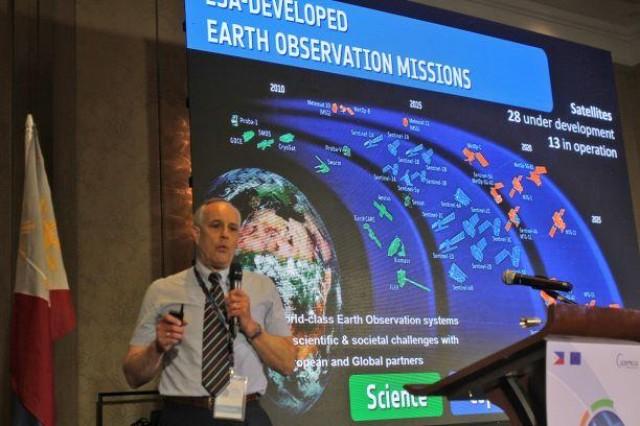EU unveils satellite technology for environmental monitoring, disaster response in the PHL

The European Union Delegation introduced on Monday its satellite technology, the EU Earth Observation Copernicus Programme, which it claimed would improve environmental monitoring and disaster response capabilities in the Philippines.
A conference was held in Makati City to create a platform where local and international scientists, development workers, policy-makers and other stakeholders may discuss the possible application of the Copernicus technology in the different industries in the country.
The Copernicus Programme aims to monitor and observe the state of environment on land, sea, and in the atmosphere on a global scale in order to provide "full, free, and open" near-real-time data to its end-users.
The information gathered by the Copernicus system through its satellite data and in-situ (non-space) observations may be applied in urban planning, agribusiness, and disaster risk reduction and management, among many other fields.
EU Ambassador to the Philippines Franz Jessen said during the conference that the EU is committed to forging stronger ties with the country in space technology, particularly in the field of earth observation.
National Security Adviser Secretary Hermogenes Esperon and Department of Science and Technology (DOST) Undersecretary Renato Solidum were also among the keynote speakers in the event.
Possible partnership aspects between the EU and the Philippines, as well as funding opportunities to ensure the long-term success of the Copernicus technology in the country were also presented in the conference.
The Copernicus Programme has been operating since 2014 and the EU claims that both the economic and non-monetary benefits of the satellite technology have far exceeded the €9.6 billion it invested for the implementation. —LDF, GMA News




